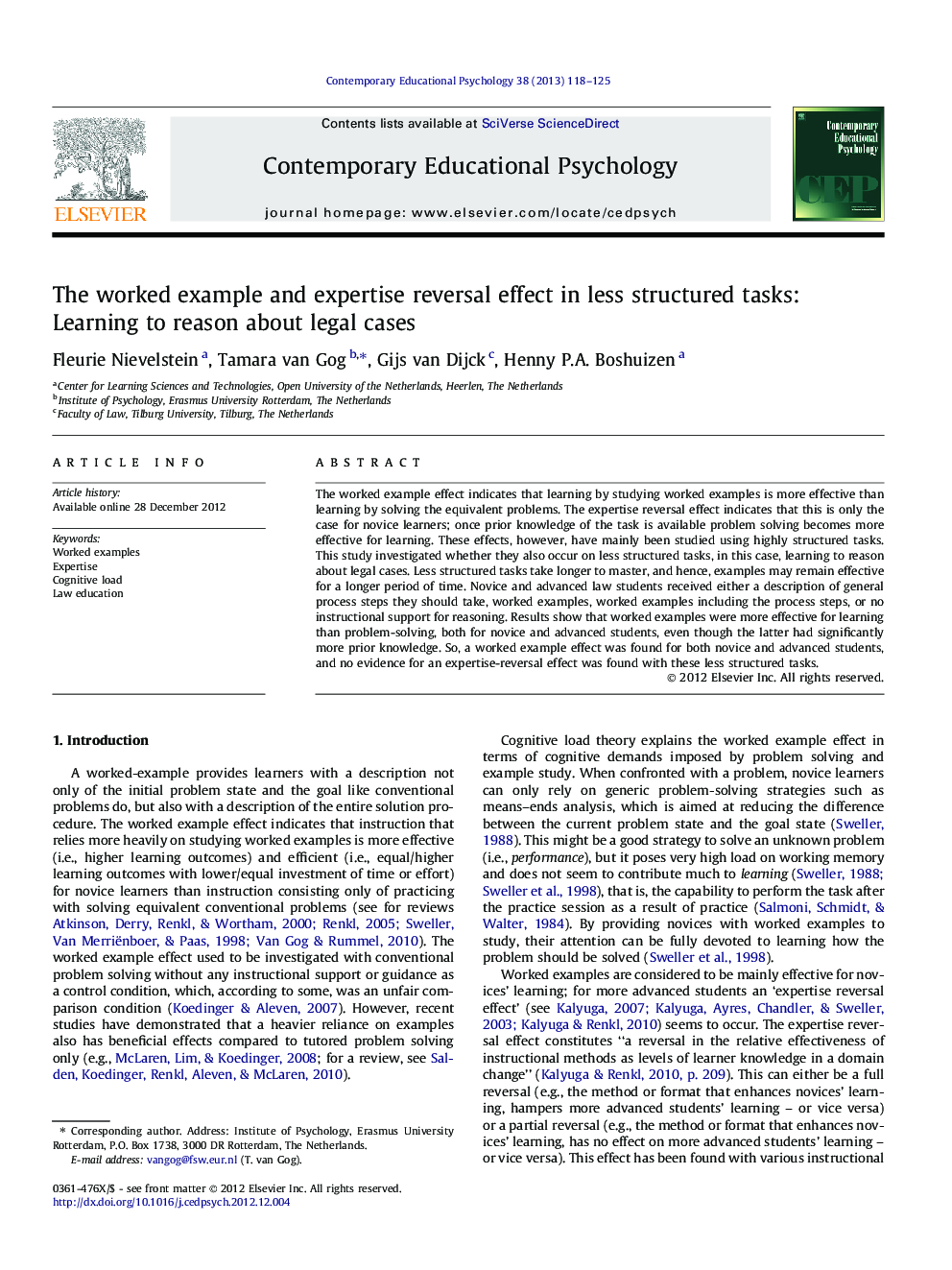| کد مقاله | کد نشریه | سال انتشار | مقاله انگلیسی | نسخه تمام متن |
|---|---|---|---|---|
| 352629 | 618605 | 2013 | 8 صفحه PDF | دانلود رایگان |

The worked example effect indicates that learning by studying worked examples is more effective than learning by solving the equivalent problems. The expertise reversal effect indicates that this is only the case for novice learners; once prior knowledge of the task is available problem solving becomes more effective for learning. These effects, however, have mainly been studied using highly structured tasks. This study investigated whether they also occur on less structured tasks, in this case, learning to reason about legal cases. Less structured tasks take longer to master, and hence, examples may remain effective for a longer period of time. Novice and advanced law students received either a description of general process steps they should take, worked examples, worked examples including the process steps, or no instructional support for reasoning. Results show that worked examples were more effective for learning than problem-solving, both for novice and advanced students, even though the latter had significantly more prior knowledge. So, a worked example effect was found for both novice and advanced students, and no evidence for an expertise-reversal effect was found with these less structured tasks.
► The worked example effect (WEE) has mainly been shown in well-structured tasks.
► The same applies to the expertise-reversal effect (ERE).
► This study investigated these effects in a less structured task: legal reasoning.
► We did not find an ERE with those less structured tasks.
► The WEE was found for both novice and advanced law students.
Journal: Contemporary Educational Psychology - Volume 38, Issue 2, April 2013, Pages 118–125